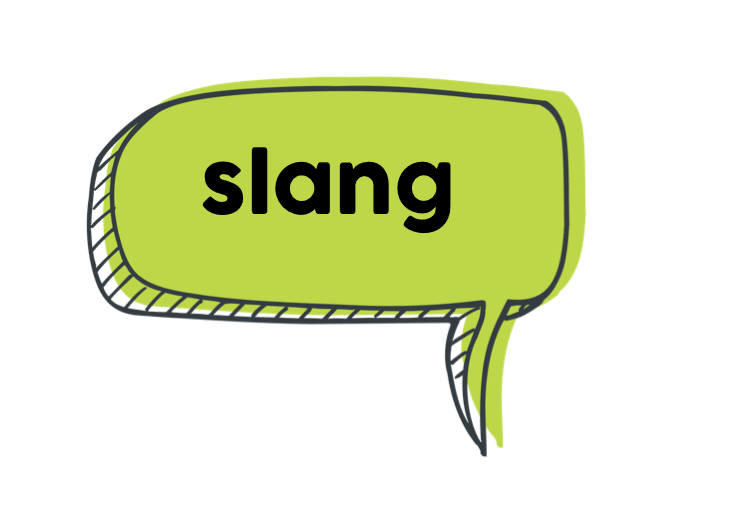Gen Z Slang Decoded: Your Guide to US Internet Lingo

Gen Z slang is constantly evolving, often originating from internet culture, social media, and gaming communities, making it essential to stay updated to understand and engage with younger audiences in the US.
Navigating the world of Gen Z slang can feel like learning a new language. Gen Z Slang Decoded: Staying Up-to-Date with the Latest US Internet Lingo is your guide to understanding the ever-evolving vocabulary of the internet’s trendsetters.
Understanding Gen Z Slang: More Than Just Words
Gen Z slang isn’t just a collection of random words; it’s a reflection of their culture, values, and experiences. Understanding this slang is key to connecting with Gen Z, whether you’re a marketer, educator, or simply someone who wants to stay in the loop.
The Origins of Gen Z Slang
Many Gen Z slang terms originate from Black Vernacular English (BVE), gaming culture, and social media platforms like TikTok and Twitter. These terms often spread rapidly due to the viral nature of the internet.
Why Gen Z Slang Matters
Gen Z slang is more than just trendy words; it’s a form of identity and community. By using these terms, Gen Z members create a sense of belonging and shared understanding.
- Cultural Relevance: Understanding the cultural context behind Gen Z slang.
- Communication: Improving communication with younger generations.
- Marketing: Enhancing marketing strategies by using relevant slang appropriately.
- Social Awareness: Staying informed about current internet trends.
By understanding the origins and significance of Gen Z slang, you can develop a deeper appreciation for this unique form of communication.
Popular Gen Z Slang Terms You Need to Know
Staying updated with the latest Gen Z slang can be challenging, but knowing some of the most popular terms is a great starting point. Let’s dive into some essential slang terms you should be familiar with.
Essential Slang Terms
Here are some must-know Gen Z slang terms that frequently appear online and in conversations.
- Slay: To succeed spectacularly or do something exceptionally well. Example: “She completely slayed that presentation!”
- Vibe: A feeling or atmosphere that someone or something gives off. Example: “This song has such a good vibe.”
- Sus: Short for suspicious, often used to describe someone or something questionable. Example: “That guy’s behavior is sus.”
- Woke: Aware of social issues and injustices. Example: “He’s very woke about environmental concerns.”
Slang Terms Related to Social Media
Social media is a breeding ground for new slang terms, many of which become widely used across different platforms.
- IYKYK: “If you know, you know,” used to refer to inside jokes or experiences. Example: “Remember that party? IYKYK.”
- Main Character: Someone who behaves as though they are the star of their own life. Example: “She’s always posting about herself; she thinks she’s the main character.”
- Mutuals: Mutual followers on social media. Example: “We have so many mutuals on Instagram.”
- Ratioed: When a reply receives more likes or attention than the original post, indicating disapproval. Example: “His tweet got ratioed because it was so controversial.”
Keeping these popular terms in mind will help you better understand and engage with Gen Z content and conversations.
Decoding Common Gen Z Phrases
Gen Z slang often includes unique phrases that require a bit more context to fully understand. These phrases are commonly used in everyday conversations and online interactions. Understanding Gen Z phrases is crucial to ensure effective communication with younger people.
“No Cap” vs. “Cap”
“No cap” means “no lie” or “for real,” while “cap” means “lie.” These terms are used to express sincerity or disbelief.
Example: “I aced the exam, no cap!” (I’m telling the truth, I aced the exam.)
“Sending Me”
This phrase means something is extremely funny or amusing.
Example: “That meme is sending me!” (That meme is so funny!)
“We Move”
“We move” is used to signify moving on from a situation, usually after a setback.
Example: “I didn’t get the job, but we move.” (I didn’t get the job, but I’m moving on.)
“It’s Giving…”
This phrase is used to describe the vibe or aesthetic something is giving off.

Example: “Her outfit is giving summer vibes.” (Her outfit has a summery feel.)
These phrases often add color and nuance to Gen Z conversations, so familiarizing yourself with them can be incredibly helpful.
How to Use Gen Z Slang Appropriately
Using Gen Z slang correctly is essential for effective communication. However, it’s also important to be mindful of your audience and the context in which you’re using these terms. Authenticity is key when incorporating these terms into your vocabulary.
Knowing Your Audience
Consider who you’re talking to or communicating with. Using slang with close friends or peers is different from using it in a professional setting.
Context Matters
Pay attention to the situation. Some slang terms are appropriate in casual conversations but not in formal communications.
Avoid Forced Usage
Don’t try to force slang into your vocabulary if it doesn’t feel natural. Authenticity is key. If you don’t genuinely understand the term, it’s better not to use it. Let’s analyze more about appropriateness of usage of words for younger people.
Listen and Learn
The best way to learn how to use slang appropriately is to listen to how Gen Z members use it in their own conversations and online posts.
Using slang correctly shows that you’re engaged and aware, but using it incorrectly can come across as inauthentic or even offensive. Slang can be tricky so knowing the right thing to say and when is key.
The Evolution of Gen Z Lingo
Gen Z lingo is constantly evolving, with new terms emerging and old ones fading away. Staying up-to-date requires continuous learning and adaptation. These changes are frequently coming from social media challenges and musical trends.
Tracking Trends
Follow social media trends to stay informed about new slang terms and phrases. Platforms like TikTok, Twitter, and Instagram are excellent resources.
Engage with Content Creators
Pay attention to content creators who are popular among Gen Z. They often use the latest slang in their videos and posts. Many of them use slang terms and that becomes very well known.
Constant Change
Be aware that slang terms can change rapidly, so something that’s popular today might be outdated tomorrow. Stay agile and ready to adapt your vocabulary accordingly.
Understanding Nuance
Grasping the subtleties and various connotations of each term can save you from using it improperly. So be careful how you utilize these words. The last thing that slang is meant to do is offend.
By continually tracking trends and engaging with relevant content, you can keep your Gen Z slang vocabulary fresh and relevant.
Gen Z Slang in Marketing and Branding
Using Gen Z slang in marketing and branding can be effective, but it requires careful consideration. Authenticity and relevance are crucial to avoid alienating your target audience. Authenticity is key and a critical feature of effective branding measures.
Authenticity Is Key
Make sure your use of slang feels genuine and not forced. Gen Z can easily spot inauthentic attempts to connect with them.
Relevance to Your Brand
Choose slang terms that align with your brand’s message and identity. Using irrelevant slang can confuse or turn off your audience.
Consider Your Audience
Understand your target audience’s preferences and sensitivities. Using slang that’s offensive or insensitive can damage your brand’s reputation.
Test and Learn
Experiment with different slang terms and measure their impact on your marketing campaigns. Use data to refine your approach and avoid common mistakes.
When used correctly, Gen Z slang can help your brand connect with younger audiences in a meaningful way. Be responsible and aware how you utilize these words in your branding campaign.
| Key point | Brief description |
|---|---|
| 🗣️ Understanding Gen Z Slang | It’s not just words; it’s culture and identity. |
| 📱 Social Media’s Role | Platforms like TikTok and Twitter drive slang trends. |
| ✅ Appropriate Usage | Consider the context and audience; authenticity matters. |
| 🚀 Marketing with Slang | Be authentic, relevant, and sensitive to your audience. |
Frequently Asked Questions
▼
Staying updated with Gen Z slang helps improve communication with younger audiences, understand their culture, and avoid misunderstandings. It’s crucial for educators, marketers, and anyone looking to connect with this generation.
▼
Gen Z slang often originates from a diverse range of sources, including Black Vernacular English (BVE), gaming communities, social media platforms like TikTok and Twitter, and popular memes. These terms spread rapidly online.
▼
To learn new Gen Z slang terms, follow social media trends, engage with content creators popular among Gen Z, and pay attention to how young people communicate online and in real life. This will help you pick up new terms naturally.
▼
Avoid using slang terms that are offensive or insensitive, forcing slang into your vocabulary if it doesn’t feel natural, and using slang without understanding its meaning. Authenticity and context are key to using slang appropriately.
▼
Yes, using Gen Z slang in marketing can be effective if done authentically and relevantly. It can help your brand connect with younger audiences in a meaningful way, but it’s important to consider your audience and brand identity.
Conclusion
Understanding Gen Z slang is essential for anyone looking to connect with this demographic, whether in personal interactions, professional settings, or marketing campaigns. By staying updated, using slang appropriately, and respecting its cultural context, you can effectively communicate and build rapport with Gen Z.





